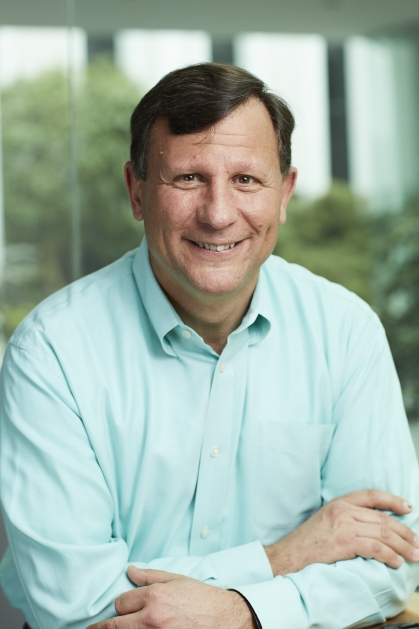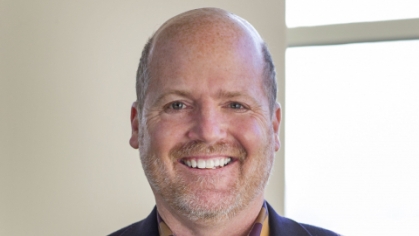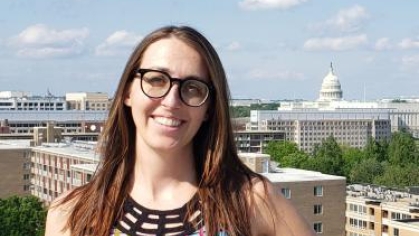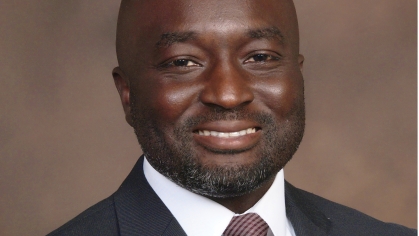Alumni Spotlight: Remo Colarusso, Jr., ENG’83, RBSG‘88
“Rather than trying to be the smartest person in the room, you should strive to surround yourself with the smartest people you can find. You will learn so much more.” –Remo Colarusso, Jr.
Remo Colarusso earned his SoE bachelor’s degree in chemical and biochemical engineering in 1983 and his MBA from Rutgers in 1988. As vice president, Janssen Supply Chain at Johnson & Johnson, he is responsible for the global manufacturing and supply management of all J&J pharmaceutical brands. Over the course of his career at J&J, he has held various leadership roles in manufacturing, pharmaceutical development, planning, strategy, engineering, project management and Lean/Six Sigma process improvement. As a member of the Global Pharmaceutical Manufacturing Leaders Forum of the International Society of Pharmaceutical Engineers; the Pharmaceutical Manufacturers Forum; and the National Association of Manufacturers, he works to foster the leadership development and advancement of his industry. A SoE 2013 Medal of Excellence recipient, Colarusso currently serves on the School’s Industry Advisory Board.

Why Rutgers?
Rutgers has a great reputation. Also important to me, my older brother and older sister are Rutgers grads and got great educations. My younger brother is also a graduate. I could also maintain some connection to my home in Wayne, New Jersey easily, which was important for a big Italian family like mine.
Why chemical and biochemical engineering?
My parents were chemists who worked for Hoffman-La Roche. Like them, I was always interested in chemistry and pharmaceuticals. But I also liked to know how things work, so the combination of chemistry and engineering was a nice fit for me.
You’ve had a distinguished career with J&J. What supply chain innovations are you most proud of?
Honestly, I don’t often look back at what I’ve done – I like to look ahead to solve the next problem. But a couple of innovations stand out for me.
A decade ago, we completely redesigned how we organized our end-to-end supply chain and developed a business model now embraced by many leading supply chains. For us, it was about putting customers first and creating supply chain innovations that mattered to them.
Another big technological innovation was working together with Rutgers and its Center for Structured Organic Particulate Systems, or C-SOPS, to develop a continuous manufacturing process for traditional solids-based pharmaceuticals. This revolutionary process delivered a step change in consistency and enabled what is known as real time quality release, setting a new bar for quality in the industry. It was approved by the FDA early last year and is now allowing more efficient production of reliable products. This fulfilled any engineer’s goal: to not only get the job done, but figure out how to do it better.
What is J&J’s involvement in the current pandemic crisis?
The J&J Credo puts the needs and well-being of our patients and customers first – including the nurses, doctors, mothers and fathers, and all of those who use our products. This focus drives collaboration across every facet of our company, and I believe society as well, and that’s a great thing. At J&J, we’re working in many ways to help.
For example, we recently made a $50 million donation to support frontline health workers battling COVID-19. We’re also supporting J&J doctors and nurses who are going to work on the frontlines.
We recently entered into a landmark agreement with BARDA – the Biomedical Advanced Research and Development Authority of the U.S. Department of Health and Human Services – to fund $1 billion in COVID-19 vaccine research. BARDA is supporting our Research & Development efforts, while we’re investing in our own manufacturing capabilities to be able to get a potential vaccine for COVID-19 to those who need it.
Are you personally involved in these measures?
I am part of Johnson & Johnson’s global enterprise supply chain and I lead the Janssen pharmaceutical supply chain within it. In this capacity, I’m working very closely with the COVID-19 vaccine team designing the end-to-end supply chain needed to source, make, and supply the prospective vaccine to those who need it. This wasn’t in our plans going into this year, but we’re doing what we can to meet the challenge of making a vaccine available for emergency use in the fastest time possible.
My day-to-day job is impacted by the current situation, too, as I maintain the ongoing commitment to our patients by ensuring that the supply of life saving and life changing therapies continues to reach them as we face unprecedented new challenges every day. We’re working to fulfill this fundamental responsibility to our patients by employing our business continuity plans and I’m very confident we can and will continue to live up to this responsibility as put forth in our Credo.
Are you involved in any mentoring activities?
I’ve been fortunate throughout my career to have mentors who weren’t necessarily my bosses but who were people who gave me great advice right from my very first job. This made a huge difference.
I have the pleasure of mentoring many people across J&J, including other leaders as well as recent college graduates that are in J&J’s Global Operations Leadership Development (GOLD) Program. While I can’t claim the credit, I’m pleased to say there are almost always some Rutgers graduates within this group.
I’m trying to give back as was given to me, quite frankly. I just think it’s part of my responsibility because when I leave this great company, my legacy will be judged by the people that I’ve worked with and supported along the way. Preparing the next set of leaders is a big part of what any leader should do.
How do you describe your leadership style?
It starts from an approach – and then gets to a style. When I first approach the team I’m going to be working with, I try to focus on the diversity of the team in terms of diversity of thought. I want people who don’t think like I do, who come from different areas, and who can bring something different to the table.
I want to surround myself with a team of really smart people, which makes my job that much more fulfilling because I can continue to learn from them. With a group like that, I lead by setting and clarifying a vision of where you want the organization to go and then I try to get out of the way and empower them so they can unleash their talent.
What do you most value about your Rutgers education?
Rutgers taught me how to solve problems and many jobs – but particularly those in a supply chain - are all about problem solving: every day there’s a different problem to solve. Rutgers was a great enabler in enhancing my ability to solve things and get them done, which is something I carry with me today.
At Rutgers, we also worked in teams, which is how work gets done these days in supply chain. Almost every problem is solved by a cross-section of people across many different functions like planning, manufacturing, quality and distribution. And at J&J, when you solve a problem in health care that saves peoples’ lives, it makes a difference in the world.
How important has your Rutgers business education been?
I often have conversations with engineers that we need great technical engineers tightly focused in the fields they study. But business is a broad undertaking and is driven by finance. If you’d rather be a broad learner in a business, you will need to learn about finance, which I call the language of business, to understand how the overall business functions. Engineering and business together are a nice combination for my job and essential for many jobs in supply chain.
What advice would you give yourself that you wish you’d known when you started college?
College life and working life are different. When I was in college and high school, I had an achievement mindset and wanted to be the best in whatever I did, as most students do, perhaps at the expense of always listening.
Looking back, I wish I’d had a different mindset then. Rather than trying to be the smartest person in the room, you should strive to surround yourself with the smartest people you can find. You will learn so much more.
Were you involved in any extracurricular activities?
I loved Rutgers. It was much more than an academic experience for me.
I played all sorts of intramural sports and I played trumpet in the marching band, pep band, and jazz band. Interestingly, I met my wife at Rutgers and the connection was based on knowing her cousin earlier through my high school bands.
I love music and sports, so being in the band enabled me to attend every football and basketball game all four years.
Even today, I’m very active, playing golf, racquetball, cycling, and working out in the gym almost every day. I live close enough to Rutgers to enjoy season football tickets each year.
I still play the trumpet, but not as much as I’d like. I play trumpet duets with my youngest son, another aspiring chemical engineer.
What’s the last book you read?
I read a lot when I travel but haven’t traveled at all lately. I switch back and forth between fiction and non-fiction. I love history and recently read The Rise and Fall of the Third Reich. It was awesome. I enjoy sci-fi and Tom Clancy type fiction. And I read books on business. From Good to Great: Why Some Companies Make the Leap. . .and Others Don’t is a favorite book and affected how I think about transformation in my business life.
If you could go on vacation tomorrow, where would you go?
I love the beach. I’d go anywhere with a beach. My family loves the beach as well and the Jersey Shore is a big part of our life. We’ve done many different vacations as a family, but three quarters of them involved a beach. For us, vacation is about breaking from the norm where you can relax, disconnect, go for a walk, or sit and read a book.
Italy – and especially Florence – is another favorite. A great vacation would be to combine the two.


